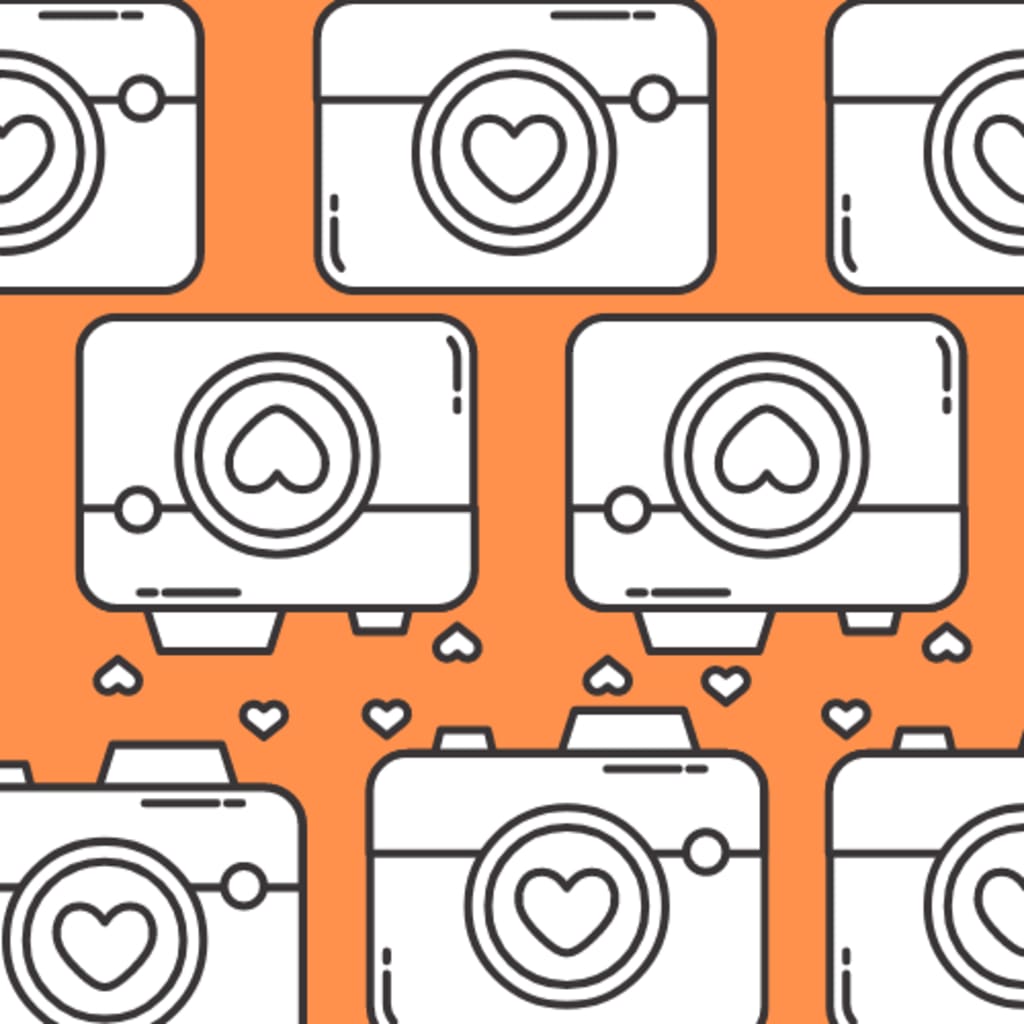Social Media Effect
Does social media have an effect on you?

Have you ever considered that Instagram affects your self-esteem or how you view yourself? Do you ever sit and think, why do I like using Instagram? Instagram is a social media that allows the human to make post about their life and share it with the world. You may wonder what the big deal is, well let me tell you. With every post you make, Instagram has a feature that will display how many people like what you post. I personally use Instagram and Facebook in my free time and I find it to be a good pass time. But, I will also admit I feel effected by its absence. It is my plan to share my personal experience of using Instagram and back it up with facts from other sources. Social media is such a great source, but I found it to be a hindrance as well. Let’s explore what others have to say about how Instagram affects self-esteem.
Instagram is a platform that allows individuals to post about various subjects, such as, beauty tips, relationship goals/advice, and even comical content to make others laugh. However, social media can be a very dark place as well. Instagram tends to have this effect on people where they compare their lives to others they see. That comparison normally leads individuals to experience feelings of loneliness, envy, and even depression(Silva, 2017). Self-esteem can be defined as an evaluation of one’s self-worth. Self-worth is about a person knowing what they desire to experience or what they deserve as a whole. This energy can be found in the solar plexus chakra which also holds the space for our personal power. This is important to understand because you can prevent yourself from feeling like the 60%, of a 28-73 year old population, that reported using social media affected them negatively(Silva 2017). You are less likely to compare yourself when you know you have the power to create a similar experience for yourself. Moral of the story, try not to compare yourself to the lives of others, the paradox effect will prompt you to feel inadequate.
The paradox effect is when social media, or Instagram, portrays the illusion of many choices and invalidates the simple things in life. A licensed psychologist by the name of Dr. Jennifer Rhodes, found that a collective of her clients had decreased social skills and lacked security due to their excessive use of social media(Silva, 2017). Unfortunately, this dynamic can affect mental health, because some use social media as a coping mechanism, according to Natalie Berry. In her testing sample, she discovered her participants had experienced low moods but had not experienced a lowered self-esteem. The case study included sending participants random surveys six times out the day and giving them a 15 minute time window to respond. The survey consisted of a series of questions aiming to correlate their usage of social media to mood changes, self-esteem influences, and paranoia.
Her results showed that people are more likely to experience low moods when they receive little to no ratings or some form of feedback on their post about their emotions or if they were venting. This revealed that people of a low social rank felt into the low moods as well, but still no problems within their self-esteem(Berry, 2018). I will attest to those results because I experience that feeling too. I sometimes “get in my feelings” because I didn’t get the reaction I expect to get from my audience, but my self-esteem is not affected. Or other times I get very upset because someone wants to invalidate my expression because it is not what they expected from me. I have learned to use Instagram as a tool versus a source of entertainment. Using Instagram as a tool versus entertainment could exclude you from the vanity validation contagion.
Vanity validation is where an individual will portray one identity online and another identity in person, and they normally are not aligned. Studies show that 80% of a collective has confirmed its easier to deceive others through your sharing on social media(Silva, 2017). Martin Graff, senior lecturer of University of South Wales, found a collective of 18-78 year olds – 70% of that population had a tendency to post about five times across ten different types of social media, a day. After all the testing, he found that self-esteem had not been affected. He highlighted different factors like positive posting that related to the self-esteem, and mentioned that people experienced more confidence in themselves as they posted positive messages about themselves. In his research it turned out that the validation affected the mood more so than the self-esteem(Graff, 2021). I’ll second that as well. My mood being messed up has more of an effect on my self-esteem than the lack of validation. However the opposite proves true, if I am posting something to seek validation; my whole mood and self-esteem can be affected. This search for validation as created a “Millennial Virus”.
The Millennial Virus can be described as creating moments that keep us digitally connected emotionally, and comparing ourselves. Instead of experiencing a lowered self-esteem, Dr. Wick found that a lot of teens are suffering with self-doubt(Jacobson, 2021). The self-doubt was stemming from them feeling like they needed to uphold this sense of perfection. This sense of perfection was bred by the constant uploads of pictures to a platform such as Instagram. Some begin to realize this perfection they saw had another story to it. Dr. Wick stated, “If you practice being a false self eight hours a day, it gets harder to accept the less-than-perfect being you really are …” and that explains why some teens experience depression or frustration. They don’t realize they have created a gap between who they are and who they want others to think they are. Adults do this too. It’s best to draw away from Instagram sometimes and allow yourself to experience who you are without the social media chatter. Dr. Wick also offered parents perspectives to help their child navigate through the social media world. She suggested the parents prompt the children to “think outside the box” by asking them to view the post more critically. Wick thought the parents should ask the child things like, “what do you think has been cropped out” or “what’s the purpose of posting a picture”. I thought that was eye-opening myself because I have never looked at a picture like that; I look at it for what it is. She also thought it would be helpful for the parent to model a healthy response to failure. Wick confirmed that when kids see their parents bounce back from a failure, they understand that it’s okay to fail and subconsciously learn you can get up and try again. Social media makes failure seem like a death.
Social media does not have to affect your sense of self-worth, but it will if you allow it. Social media is meant to be used as entertainment, but it is up to us to figure out the balance in our usage. Like Dr. Wick suggested, take a closer look at what you’re looking at and consider the other side of the story, then see how detached you become. Life is more than a like. It’s is time we begin to explore what life is and leave others to wonder what you’re up to.
Work Cited
Berry, N., Emsley, R., Lobban, F., & Bucci, S. (2018). Social media and its relationship with mood, self‐esteem and paranoia in psychosis. Acta Psychiatrica Scandinavica, 138(6), 558–570. https://doi-org.ezproxy.mclennan.edu/10.1111/acps.12953
GRAFF, M. (2021). Please Follow Me: DOES VALIDATION ON SOCIAL MEDIA TELL YOU WHAT TYPE OF PERSON YOU ARE? Psychology Today, 54(1), 48.
Jacobson, R., 2021. Social Media and Self-Esteem | Impact of Social Media on Youth | Child Mind Institute. [online] Available at: https://childmind.org/article/social-media-and-self-doubt[Accessed 7 March 2021].
Silva, C. (2017). Social media’s impact on self-esteem. Huffpost. https://www.huffpost.com/entry/social-medias-impact-on-self-esteem_b_58ade038e4b0d818c4f0a4e4. Retrieved 8/6/19.
About the Creator
Drako the Righter
What's crack'n gang, major love for stopping by. You know what to do, PLEDGE TO ME AND ILL SET YOU FREE! No, but seriously… thank you for your support






Comments
There are no comments for this story
Be the first to respond and start the conversation.